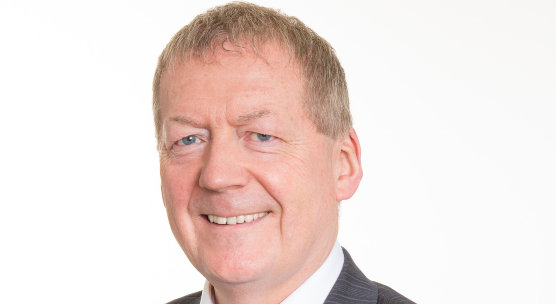Two medicines prove more effective than one for the initial treatment of high blood pressure
Published On Wed 23 Sep 2015 by Grant Hill

A team of researchers, including the University of Dundee’s Professor Tom MacDonald, have shown that starting treatment for hypertension with two medicines at the same time rather than one can significantly reduce blood pressure and may cut the subsequent risk of strokes and heart attacks.
The British Hypertension Society Research Network of academic researchers, led by Professor Morris Brown from the University of Cambridge, Professor Bryan Williams from University College London and Professor MacDonald, carried out the PATHWAY-1 Study to examine the effect of giving patients two medicines commonly used to treat high blood pressure rather than the one that would normally be given in the first instance.
The study allocated both hydrochlorothiazide and losartanto to 304 patients who had untreated high blood pressure and only one of the medicines to a further 301 patients. Those who received two medicines had a much lower blood pressure over the first four months of the study which, if translated to a large population, would be expected to reduce cardiovascular events such as stroke of vascular death.
This was true even when the best single medicine at optimal dose was chosen using the best predictors of effectiveness. After the first four months both groups got two medicines for a further four months and the study also showed no significant downside to patients receiving both medicines.
The researchers will present their work at the British Hypertension Society Scientific meeting in Stratford-Upon-Avon on Wednesday, 23rd September.
Professor MacDonald, the current president of the British Hypertension Society, said, “We wanted to know if good early control of blood pressure would carry over to better longer term control after everyone got two medicines. However, we found that this was not the case. Nevertheless, even when we averaged the better blood pressure on two medicines over the first eight months, it was very significantly better.
“An understandable concern was that two medicines might have unacceptably more side effects such as dizziness compared with single medicine therapy but we did not find this. As such, we are reassured that we can now recommend combined medicines for the initial treatment of patients with high blood pressure which will reduce blood pressure and result in fewer strokes, heart attacks and sudden deaths.”
Professor Williams, who has previously led the joint Society and NICE guideline committee, added, “This study should change guidelines to recommend starting treatment with two medicines as standard therapy for high blood pressure for the vast majority of people.”
PATHWAY 1 also looked at whether measuring a hormone called renin would predict the blood pressure-lowering effect of treatment.
Professor Brown, who spearheaded the PATHWAY program, said, “Whilst the renin hormone level did predict who might best respond to single medicine treatment, even the best predicted response to a single medicine was not nearly as good as combination medicines and interestingly, renin did not predict the benefit of combination medicines.”
Notes to Editors:
British Hypertension Society: www.bhsoc.org.uk
The British Hypertension Society provides a medical and scientific research forum to enable sharing of cutting edge research in order to understand the origin of high blood pressure and improve its treatment.
For media enquiries contact:
Grant Hill
Press Officer
University of Dundee
Nethergate, Dundee, DD1 4HN
TEL: 01382 384768
E-MAIL: g.hill@dundee.ac.uk
MOBILE: 07854 953277